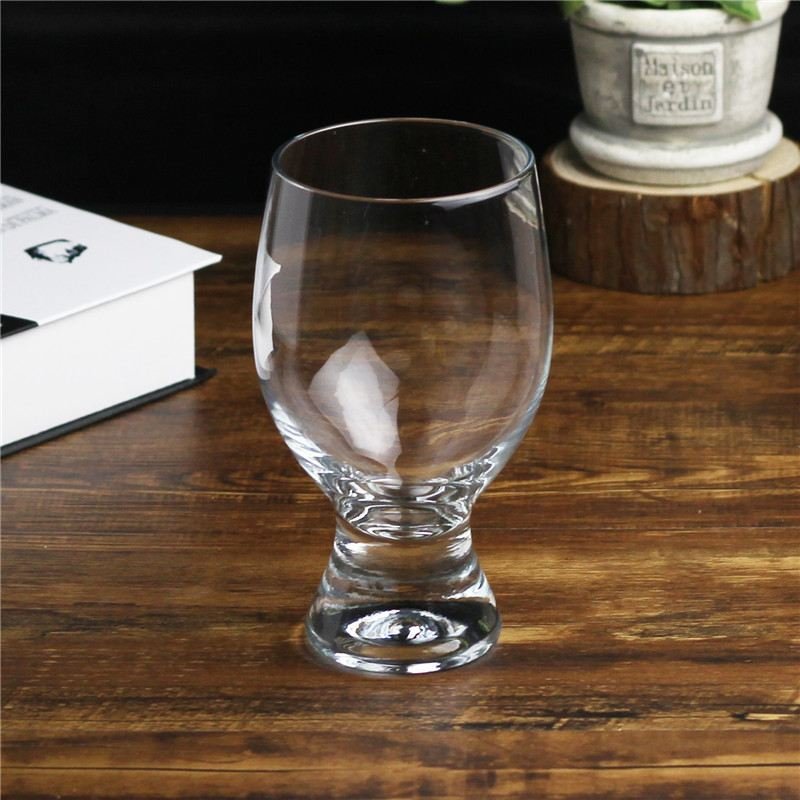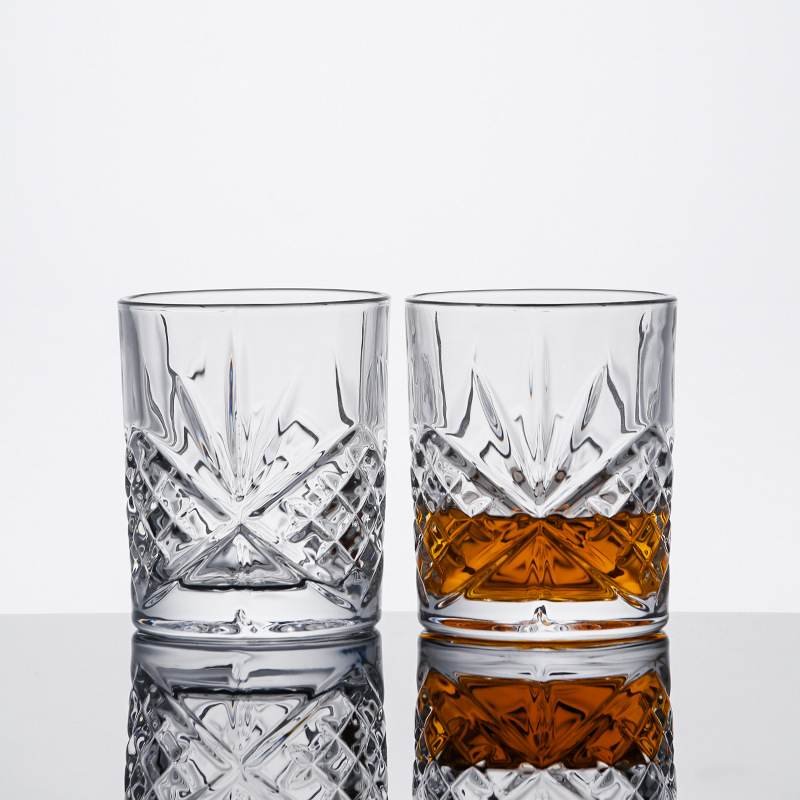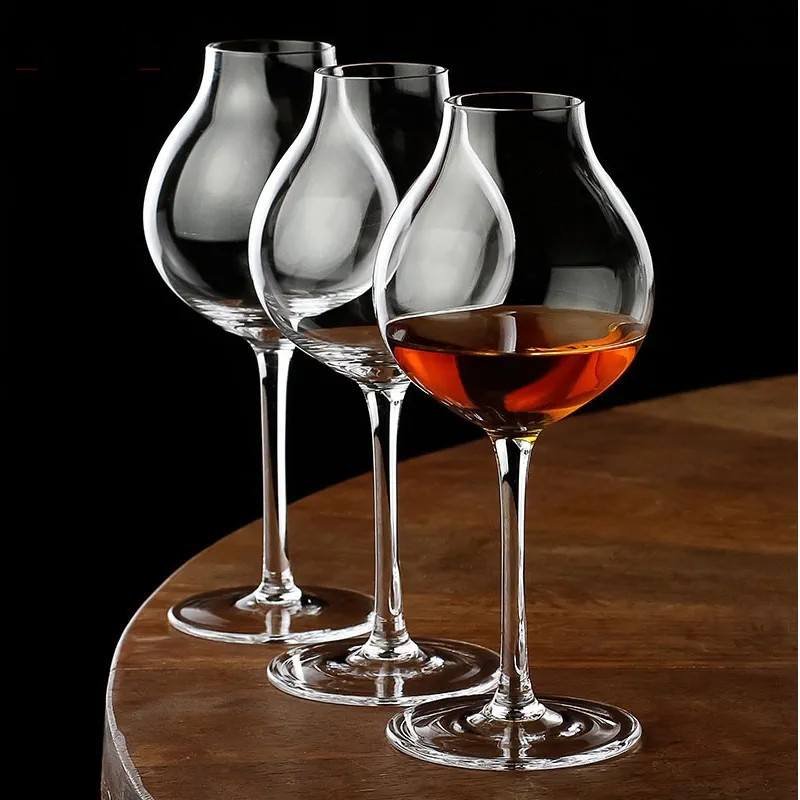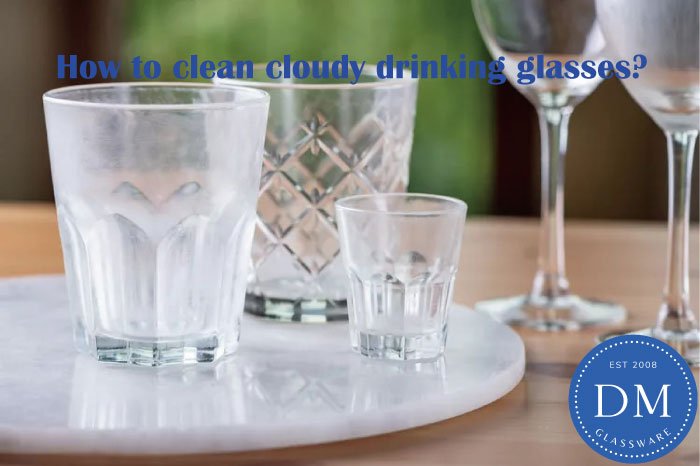
How to clean cloudy drinking glasses?
Do your drinking glasses look dull and cloudy no matter how often you wash them?
Here’s the deal: cloudy drinking glasses are a common frustration, often caused by hard water, dishwasher residue, or even wear and tear over time.
But wait, there’s good news!
You don’t have to live with dull, lifeless glassware. In this guide, we’ll walk you through simple and effective methods to clean glasses and restore their sparkle.
Let’s dive in!
Table of Contents
Why Do Glasses Get Cloudy?
Let’s face it: there’s nothing more disappointing than pulling your favorite glassware out of the cupboard only to find it covered in an unsightly haze.
So, what’s going on here?
Hard Water Effects on Glass
Hard water contains minerals like calcium and magnesium that leave behind a stubborn residue on glass surfaces. Over time, this residue builds up, creating that cloudy appearance you can’t ignore.
Dishwasher Residue
Dishwashers can be a blessing and a curse. Incorrect detergent use or inadequate rinsing often leaves behind soap scum and residue, adding to the cloudiness problem.
Calcium Deposits vs. Glass Etching
Not all cloudiness is created equal. Calcium deposits are removable, but glass etching—caused by corrosive detergents or excessive heat—is permanent damage to the surface of your glassware.
Glass Cloudiness Reasons
Let’s sum it up: cloudy glasses happen due to hard water, dishwasher misuse, calcium buildup, or even irreversible etching. Identifying the cause is the first step toward restoring that crystal-clear shine!

Source: The Spruce
The Best Methods to Clean Cloudy Drinking Glasses
Ready to bring your glassware back to life? Here’s how you can tackle the problem head-on and restore their sparkle.
Vinegar for Cleaning: A Natural, Effective Solution
Here’s the truth: white vinegar is your best friend when it comes to removing hard water stains and residue.
Here’s what you do:
- Fill a basin with equal parts warm water and white vinegar.
- Soak the cloudy drinking glasses for 15-30 minutes.
- Rinse thoroughly and dry with a lint-free cloth.
Why does it work? The acidity of vinegar breaks down mineral deposits without damaging the glass.
Baking Soda for Cleaning: Removing Stubborn Spots
Got tough stains that won’t budge?
Here’s a trick:
- Sprinkle baking soda on a damp sponge or cloth.
- Gently scrub the spots in circular motions.
- Rinse with warm water and dry immediately.
Fun fact: baking soda’s gentle abrasiveness helps lift stubborn residue without scratching the glass.
Combining Solutions: Homemade Cleaning Recipes
For the ultimate cloudy glass fix, combine the powers of vinegar and baking soda.
Here’s how:
- Make a paste using baking soda and a small amount of water.
- Apply the paste to the cloudy areas.
- Pour a little vinegar over the paste and let the fizzing action loosen the buildup.
- Rinse thoroughly and admire your sparkling clean glassware!
Pro tip: This method works wonders for glasses with persistent hard water stains and cloudy patches.
Step-by-Step Guide to Cleaning Cloudy Glasses
Feeling overwhelmed by cloudy glassware? Don’t worry; we’ve got you covered! Follow these steps to make your drinking glasses sparkle like new.
Step 1: Inspect Your Glassware for Damage or Etching
Before you dive in, take a closer look.
Why? Some cloudiness may be permanent damage caused by etching. Hold the glass up to the light:
- If the cloudiness appears as surface residue, it’s fixable.
- If the glass feels rough or has permanent marks, etching might be the culprit.
Knowing this upfront saves you time and effort.
Step 2: Prepare Your Cleaning Tools and Solutions
Now that you’ve identified the issue, it’s time to gather your arsenal:
- Tools: A soft sponge, microfiber cloth, and a non-abrasive brush.
- Solutions: White vinegar, baking soda, and warm water (or a commercial glass cleaner if preferred).
Pro tip: Opt for natural cleaning solutions like vinegar and baking soda to avoid harmful chemicals.
Step 3: Soaking and Scrubbing Techniques for Hard Water Spots
Here’s where the magic happens:
- Soaking: Submerge your glasses in a mixture of warm water and white vinegar (1:1 ratio) for 15-30 minutes to loosen deposits.
- Scrubbing: Use a sponge dipped in baking soda to gently scrub away stubborn spots. Avoid abrasive scrubbers that might scratch the glass.
- Rinse thoroughly to remove all residue.
Still not seeing results? Combine baking soda and vinegar for an added fizzing action to tackle hard water spots.
Step 4: Proper Rinsing and Drying for Sparkling Clean Glassware
Don’t skip this step—it’s the secret to spotless glasses!
- Rinse each glass thoroughly with clean, warm water to remove any lingering cleaning solution.
- Dry immediately with a microfiber cloth to prevent water spots from forming.
Pro tip: Avoid air drying, as this can leave behind streaks or residue. Instead, a quick polish with a lint-free cloth ensures a flawless finish.
Removing Hard Water Stains: Targeting the Tough Spots
Hard water stains can be stubborn, but they’re no match for the right techniques and cleaning solutions. Here’s how to tackle them effectively.
White Vinegar Cleaning for Hard Water Spots
White vinegar is a go-to solution for dissolving mineral deposits:
- Fill a bowl with equal parts white vinegar and warm water.
- Soak the glassware for 15-30 minutes to loosen the stains.
- Scrub gently with a soft sponge and rinse thoroughly.
Pro tip: For tough spots, dip a toothbrush in vinegar and scrub the affected areas.
How to Remove Hard Water Stains with Lemon Juice
Lemon juice isn’t just for your tea—it’s also a natural cleaner!
- Cut a lemon in half and rub it directly onto the stained areas.
- Let the juice sit for 5-10 minutes to break down the buildup.
- Rinse with warm water and dry immediately for a streak-free finish.
Bonus tip: Combine lemon juice with a pinch of baking soda for added cleaning power.
Advanced Cleaning Solutions for Glass
If natural remedies don’t do the trick, try these options:
- Commercial Hard Water Stain Removers: Specifically designed for tough stains. Always follow the product’s instructions.
- Magic Erasers: Gently scrub the glass to remove stubborn spots without scratching.
- Distilled White Vinegar and Salt Paste: Mix vinegar and salt into a paste and apply it to stained areas. Rinse and dry thoroughly.
Pro tip: Always test advanced solutions on a small, inconspicuous area to ensure they won’t damage your glassware.
Preventing Cloudy Glassware: Proactive Tips
Tired of dealing with cloudy glasses? The best solution is prevention! These proactive tips will help keep your glassware sparkling clear.
Cloudy Glass Prevention for Handwashing and Dishwashing
- Handwashing Tips:
- Use warm, soapy water and a soft sponge to clean your glasses.
- Rinse thoroughly and dry immediately with a microfiber cloth to avoid water spots.
- Dishwashing Tips:
- Place glasses securely to prevent them from knocking into each other.
- Use a detergent designed for glassware and ensure proper rinse cycles.
Pro tip: Avoid using high heat drying cycles in the dishwasher to reduce the risk of etching.
Dishwasher Maintenance for Optimal Results
Keeping your dishwasher clean and in good condition is key to avoiding cloudy glasses.
Using Rinse Aid for Glasses
- A rinse aid minimizes water spots by promoting faster drying.
- Ensure your dishwasher’s rinse aid compartment is filled regularly for optimal results.
Cleaning Dishwasher Filters to Reduce Residue
- Remove the dishwasher filter and clean it thoroughly every few weeks to prevent buildup.
- Check for food particles and other debris that might affect performance.
Pro tip: Run an empty dishwasher cycle with vinegar every month to keep it clean and free of residue.
Soft Water vs. Hard Water: How It Impacts Your Glassware
- Soft Water: Gentler on glassware, reducing the risk of mineral deposits and residue.
- Hard Water: High in calcium and magnesium, leading to cloudy buildup over time.
- Install a water softener if you live in a hard water area to protect your glassware and reduce maintenance.
Pro tip: If a water softener isn’t an option, use distilled water for rinsing delicate glassware.
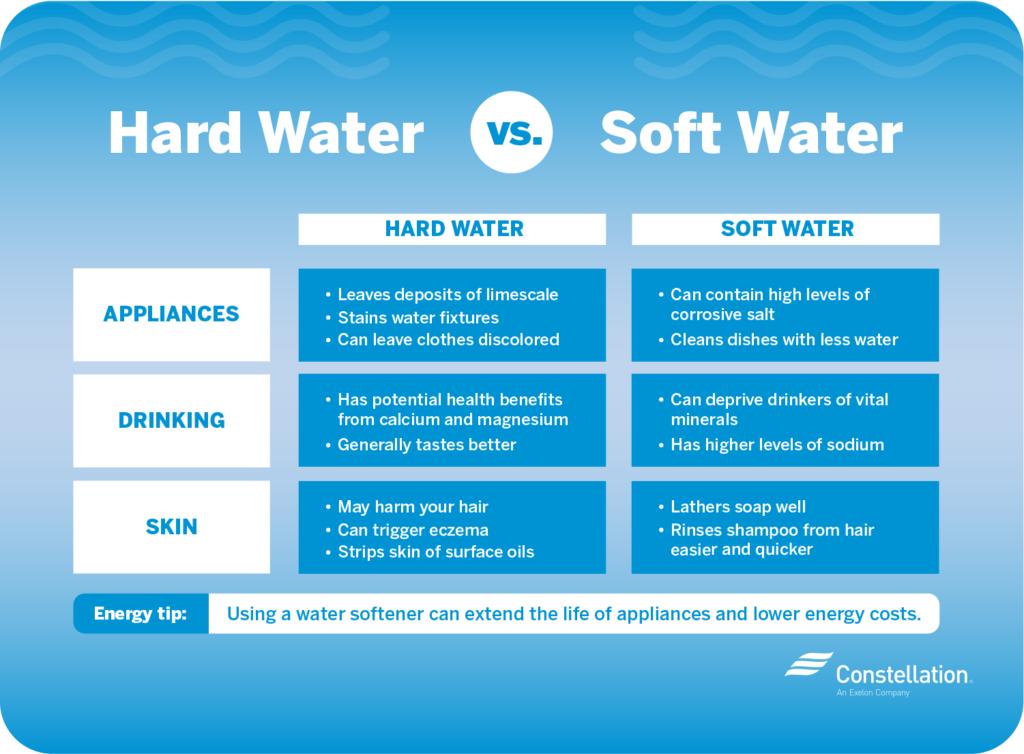
Special Cases: Cleaning and Caring for Unique Glassware
Not all glassware is created equal, and certain items require extra care to maintain their clarity and prevent damage.
Cloudy Wine Glasses: How to Restore Their Shine
Wine glasses can be particularly prone to cloudiness due to their frequent use and delicate nature.
Here’s how to clean them effectively:
- Handwash Only: Avoid the dishwasher to prevent residue and potential breakage.
- Use a Gentle Solution: Mix warm water with a splash of white vinegar for a gentle cleaning bath.
- Soak and Swirl: Soak the glasses for 10-15 minutes, then gently swirl to loosen any buildup.
- Rinse and Dry: Rinse thoroughly with warm water and dry immediately with a lint-free cloth to avoid streaks.
Pro tip: Always hold wine glasses by the stem while cleaning to reduce pressure on the delicate bowl.

Delicate Glass Items: Avoiding Damage and Etching
Fragile glassware, such as heirlooms or specialty pieces, needs extra attention to prevent etching or scratches.
Follow these steps for proper care:
- Use Lukewarm Water: Avoid extreme temperatures that can stress the glass.
- Choose Non-Abrasive Tools: Stick to soft sponges or microfiber cloths to prevent scratches.
- Avoid Harsh Chemicals: Skip strong detergents and opt for natural solutions like baking soda or mild dish soap.
- Air Dry Carefully: Place delicate items upside down on a soft, clean towel to dry naturally.
Pro tip: For items with intricate designs, use a small, soft-bristled brush to clean hard-to-reach areas gently.
With these tailored techniques, your unique glassware will stay crystal-clear and damage-free for years to come!
Troubleshooting: When Cleaning Doesn’t Work
Tried everything but your glassware still looks cloudy? It might be time to dig deeper into the issue.
Understanding Glass Etching and When It’s Permanent
Glass etching is a common but irreversible form of damage caused by:
- Harsh Detergents: Strong chemicals can corrode the glass surface over time.
- Excessive Heat: Prolonged exposure to high temperatures in dishwashers accelerates etching.
How to tell if it’s etching:
- Run your fingers over the cloudy areas. If the glass feels smooth but the haze won’t come off, it’s likely etching.
Unfortunately, once etching has occurred, the damage is permanent, and cleaning methods won’t restore the clarity.
Exploring Glass Restoration Methods: Can You Reverse Etching?
While etching cannot be completely undone, some techniques may help improve the appearance:
- Polishing Compounds: Specialized glass polishes or cerium oxide can minimize the visibility of etching.
- Professional Restoration: For valuable or sentimental items, consult a glass restoration professional.
- DIY Fixes: Try buffing the glass gently with a non-abrasive polishing cloth and a mild abrasive paste.
Pro tip: Always test a small area first to ensure the method doesn’t cause further damage.
When to Replace Glassware That’s Beyond Repair
If cleaning and restoration methods don’t work, it might be time to let go. Consider replacing glassware when:
- The etching severely affects its appearance.
- The structural integrity is compromised (e.g., chips or cracks).
- The cost of restoration exceeds the value of the glassware.
Pro tip: Invest in high-quality glassware and follow prevention tips to avoid future etching or cloudiness.
Sometimes, knowing when to replace glassware is the best way to ensure your collection remains crystal clear and elegant!
Common Myths About Cleaning Glassware
When it comes to keeping your glassware spotless, not everything you’ve heard is true. Let’s debunk some common myths and set the record straight.
Myth 1: Abrasive Tools Clean Better
It might seem logical to scrub harder for stubborn stains, but here’s the truth:
- Abrasive tools like steel wool or harsh scrubbers can leave scratches on the glass surface, making it prone to further damage.

- Over time, these scratches can trap residue, leading to persistent cloudiness.
The better option? Use a soft sponge or microfiber cloth combined with gentle cleaning solutions like vinegar or baking soda.
Myth 2: Dishwashers Always Clean Glassware Perfectly
While dishwashers are convenient, they aren’t foolproof for glassware:
- Hard water and dishwasher detergent residue can leave cloudy streaks or spots.
- The high heat and harsh detergents may cause etching over time.
Pro tip: Handwash delicate or high-value glassware and ensure your dishwasher is well-maintained with a clean filter and proper rinse aid.
Myth 3: All Cleaning Products for Glass Are Safe
Not all products labeled for glass are suitable for your delicate drinking glasses:
- Some commercial cleaners contain harsh chemicals that can cause etching or leave residue.
- Strong solutions might also damage coatings or decorations on specialty glassware.
Stick to natural cleaning solutions like white vinegar and baking soda, or check labels to ensure products are specifically designed for safe glass cleaning.
Avoiding these myths will help you maintain clear, flawless glassware for years to come!
The Ultimate Glass Care Guide for Long-Term Maintenance
Caring for your glassware doesn’t have to be complicated. With the right habits, you can keep your glasses crystal-clear and in pristine condition for years to come.
Essential Glass Cleaning Tips for Everyday Use
- Wash Immediately After Use: Prevent stains and residue from setting by cleaning glasses right after use.
- Use Warm Water and Mild Detergent: Avoid hot water or harsh soaps that can damage the glass surface.
- Rinse Thoroughly: Make sure all soap and cleaning agents are completely removed to prevent streaks or film.
- Dry Immediately: Use a lint-free or microfiber cloth to dry glasses, reducing the chance of water spots.
Pro tip: Handle glasses by the base or stem to avoid fingerprints on the drinking surface.
Homemade Cleaning Recipes for Eco-Friendly Solutions
Natural and eco-friendly cleaning solutions are both effective and safe for glassware:
- Vinegar and Baking Soda Paste:
- Mix baking soda with a small amount of vinegar to form a paste.
- Use it to scrub away stubborn stains gently.
- Lemon and Salt Scrub:
- Combine lemon juice and a pinch of salt for a natural abrasive.
- Apply to tough spots and rinse thoroughly.
- Distilled Water Rinse:
- Use distilled water for a final rinse to prevent mineral deposits from forming.
Pro tip: Always test homemade solutions on a small area first, especially for decorative or specialty glassware.
Proper Storage to Keep Your Glassware Looking New
Storing your glassware correctly can extend its lifespan:
- Avoid Stacking: Always store glasses upright and individually to prevent scratches and chips.
- Use Shelf Liners: Soft liners can protect glass bases from scratches and keep them stable.
- Keep in a Dust-Free Area: Store glasses in a cabinet with doors to protect them from dust and grime.
- Seasonal Use Storage: For rarely used glasses, wrap them in soft cloth or tissue paper to prevent damage.
Pro tip: Rotate your glassware to ensure even use and minimize wear and tear on specific items.
With these everyday cleaning tips, eco-friendly recipes, and smart storage practices, your glassware will remain as beautiful and functional as the day you bought it!
Conclusion
Cleaning and maintaining your drinking glasses doesn’t have to be a chore. Here’s the key takeaway:
- Identify the Problem: Start by determining whether it’s hard water stains, residue, or etching causing the cloudiness.
- Use the Right Methods: From white vinegar soaks to gentle scrubbing with baking soda, there’s a solution for every type of stain.
- Prevent Future Issues: Regular dishwasher maintenance, proper drying techniques, and careful storage will keep your glasses sparkling for years.
Remember, clear and flawless glassware is just a few simple steps away! With consistent care and a little effort, you’ll never have to worry about dull or cloudy glasses again.
Looking for premium glassware that’s designed to stay beautiful? Explore our collection at DM Glassware and elevate your table settings with durable, elegant designs. Visit us today and find your perfect set!
DM Glassware is providing custom glasswares for various occasions.
Our main products are machine-made glasswares, glass cups, glass drinkwares and tablewares for home and kitchen use. Such glasses like glass tumblers, glass mugs, whiskey glasses, shot glasses, glass candy jars, glass bowls, beer glasses, etc.
We also recommend the most suitable packaging method based on different sales types, such as different display boxes, adding stickers, tags, etc.
Recent Posts
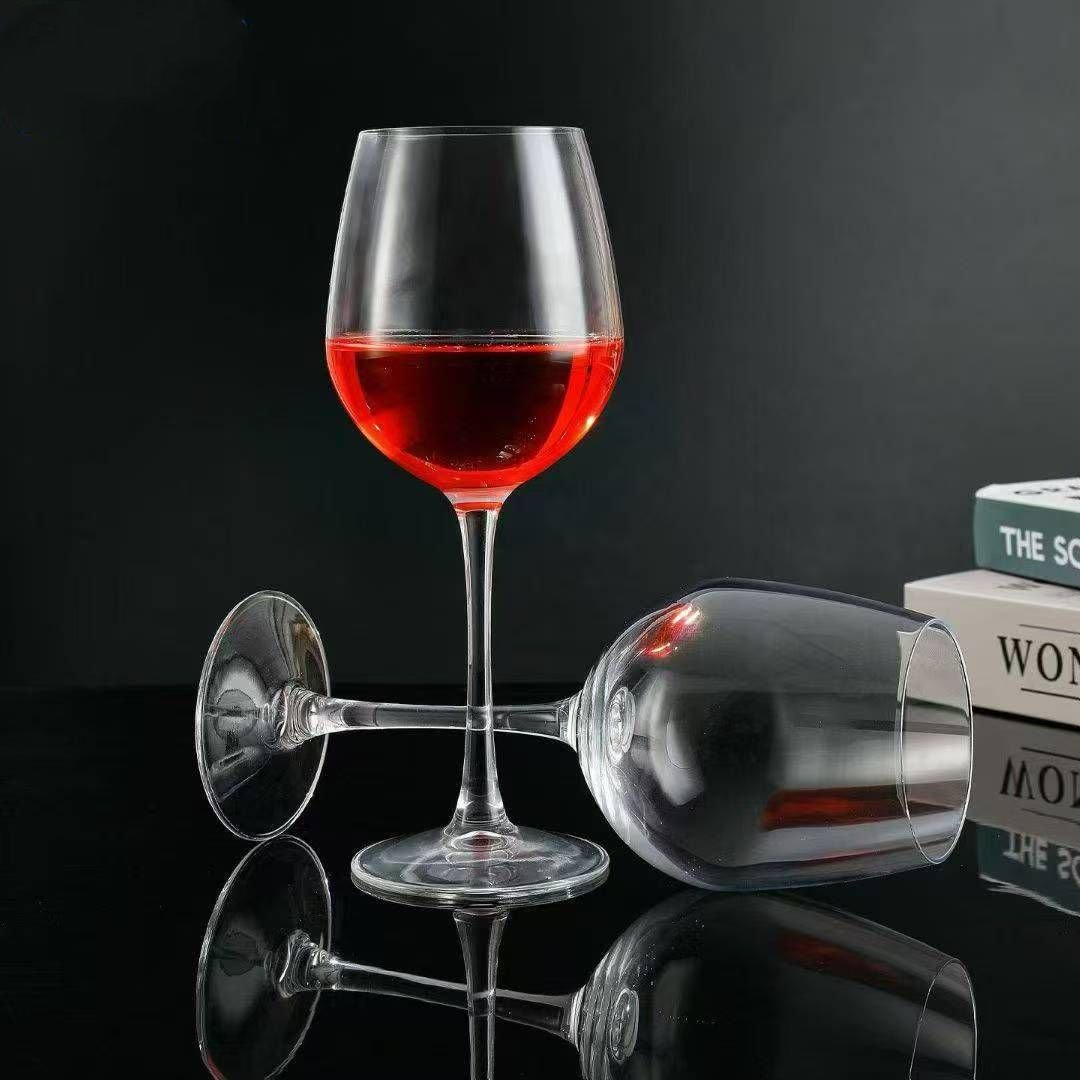
Red Wine Glasses Set Machine Made
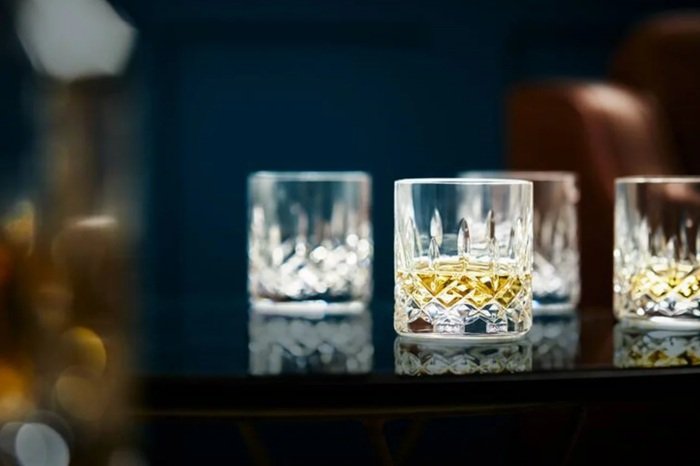

What Is Scotch Whiskey Glass?
